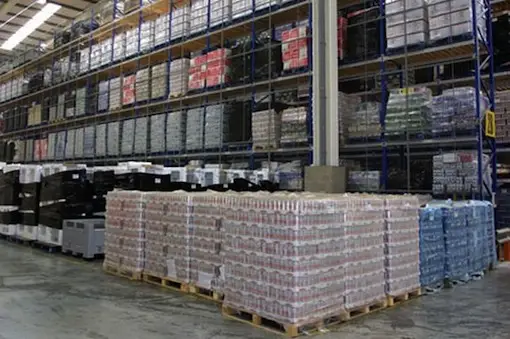Against the backdrop of sustained pressure in the foreign exchange market and high cost of production, the Manufacturers Association of Nigeria, MAN has indicated that inventory of unsold goods is escalating to levels now threatening the existence of companies operating in the production sector of the economy with attendant job losses.
Financial Vanguard’s findings show that as of the weekend the foreign exchange market had recorded over 254 per cent plunge in the value of the naira since flotation of the currency by the Central Bank of Nigeria (CBN) in June 2023.

Recall that the naira traded for N471 per dollar in the official I&E market on June 13, 2023 before the floatation of the currency, but exchanged for N1,665.50 to a dollar as at February 23, 2024 on the Nigerian Foreign Exchange Market (NAFEM), indicating a depreciation of more than 253.6 per cent over the eight-month period. The forex crisis is also stoking inflation, and coupled with high energy costs, purchasing power has continued plummet, stifling demand for goods.
Speaking on the impact of this development on the manufacturing sector, Director General, MAN, Segun Ajayi-Kadir, said: “There are reports that across the board, many warehouses and plants of many manufacturing firms are stockpiled with unsold goods manufactured last year. “The development is as a result of the devastating effects of the exchange rate crisis, inflation, fake and sub-standard goods, smuggling and other macro-economics challenges.
“These had put many manufacturers in a great dilemma in the current year as they are applying brakes on production by watching keenly events in the country to know if there would be improvement in sales in order to create space for fresh production for the year.” Ajayi-Kadir warned that manufacturers may be forced to halt making new products, leading to workforce down-sizing, since production lines are becoming inactive. “The continued naira depreciation against the dollar, and the general forex volatility were forcing manufacturers to have a rethink. No genuine manufacturer could operate successfully and make profit under the current scenario, whereby the naira has been falling sharply more than expected in the country,” he stated.
Highlighting challenges in accessing foreign exchange (forex), Ajayi-Kadir disclosed that manufacturers primarily obtain forex through Bureaux De Change (BDCs), noting that banks typically offer less than 20 per cent of the required amount. No respite yet There seems to be no respite in sight as the International Monetary Fund (IMF) has warned that the exchange rate of the Naira may further depreciate by about 35 per cent this year, adding that this could lead to inflation rate peaking at 44 per cent.
“Given the absence of local production and the recent liberalization of commodity imports, the exchange rate would likely depreciate further – by an estimated 35 per cent in 2024 – and contribute to a further sharp rise in inflation, peaking at 44 per cent, before monetary policy is eventually tightened sharply,” IMF stated in its February 2024 Post-Financing Assessment and Staff Report.







